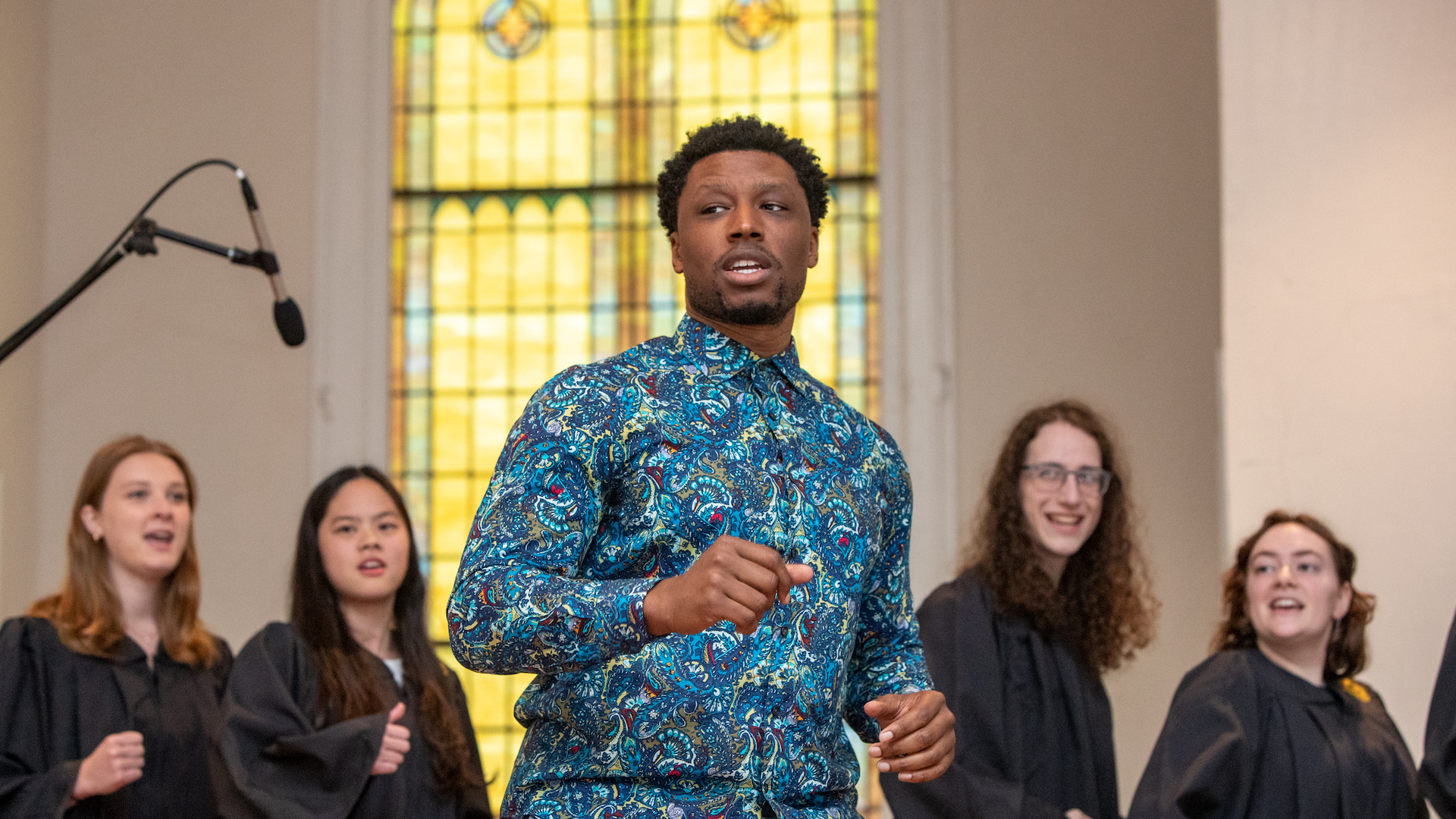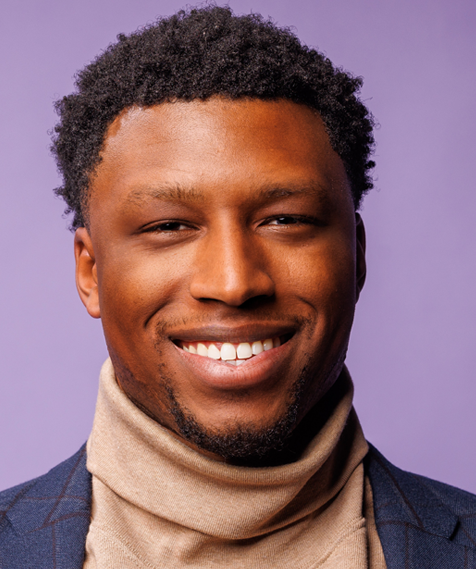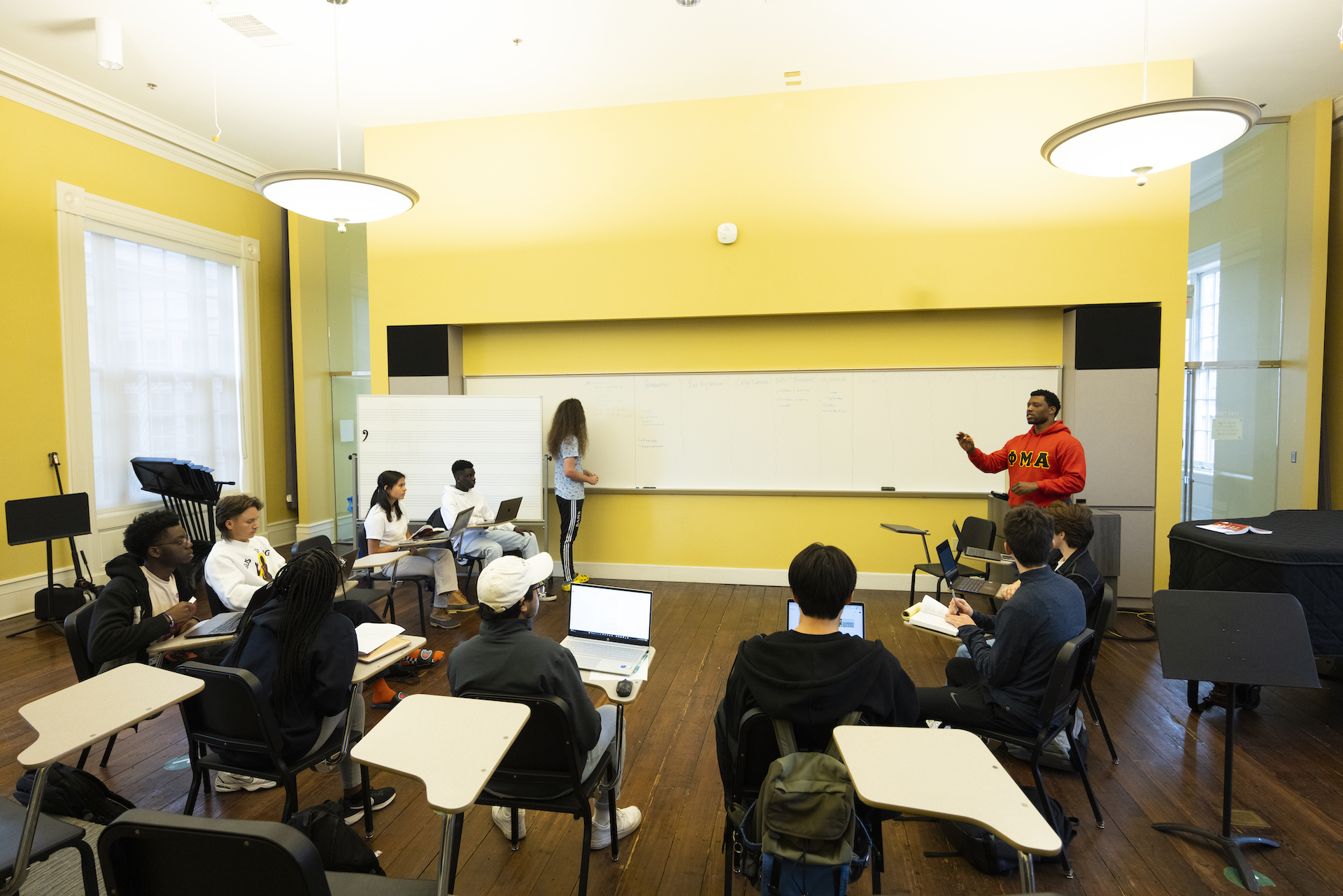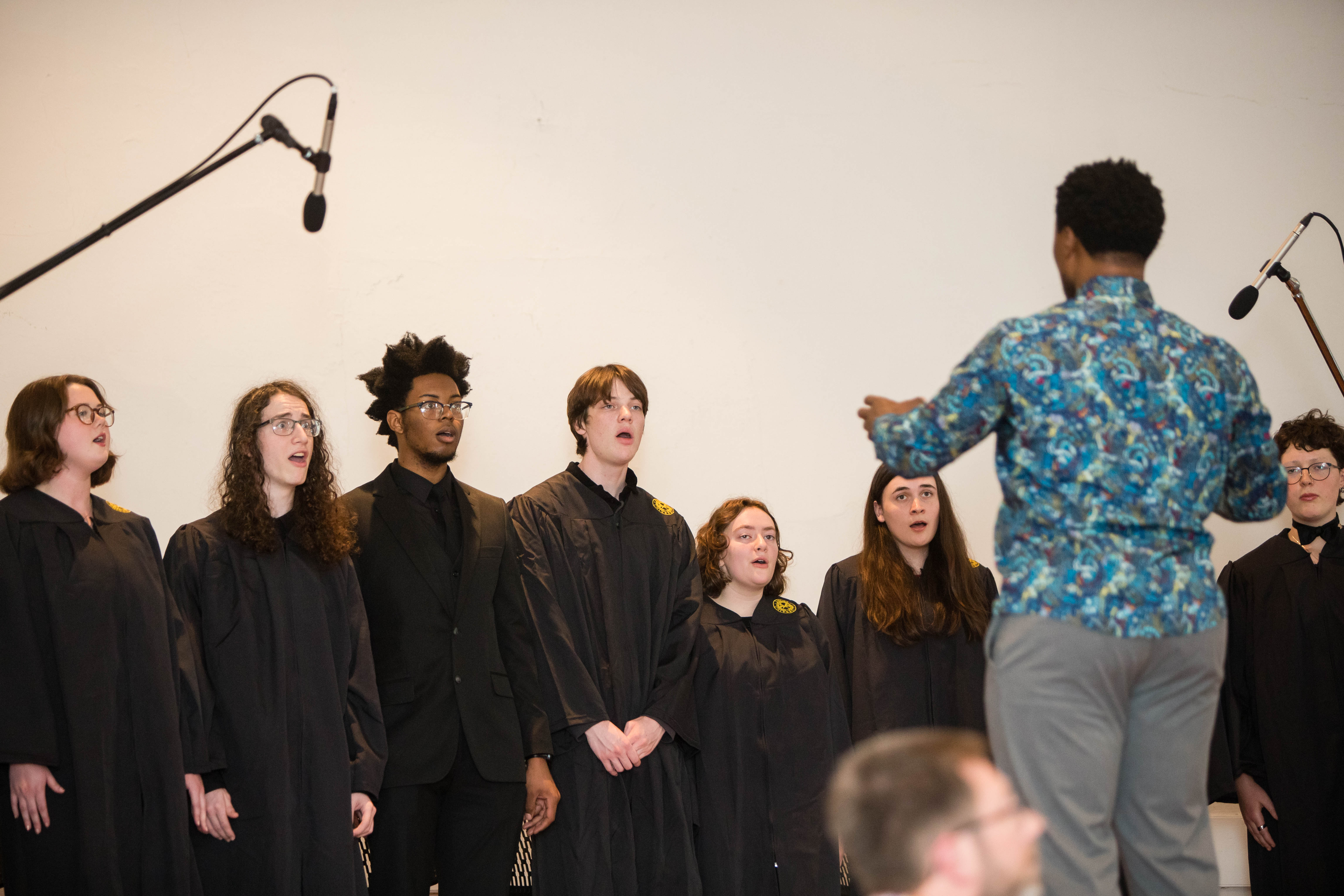Faculty Spotlight: Emorja Roberson

Assistant professor of music and African American studies Emorja Roberson helps Oxford students see music as a cultural force beyond the page.
Emorja Roberson was practically born with a love for music.
“It’s a familial thing,” he said. “I grew up in church and was in church most of my life. Music just flows through my veins, honestly.”

At Notre Dame, he was able to incorporate his gospel expertise into a program largely built around the Catholic musical tradition. As their music department sought a more ecumenical approach, Roberson emerged as a key bridge to an underrepresented religious background at the university. This experience, he says, helped shape him as a professor—and as the director of the Oxford Chorale—today.
“I had to learn how to adapt to spaces where people didn’t look like me and didn’t have the same musical background,” he said of his time at Notre Dame. “With music, we can often be too analytical and miss the experience or enjoyment, but I’ve been able to walk between worlds. The most important part of music is feeling, and I’ve I learned to communicate that with almost any group of people.”
Originally from a small town “with five stoplights” in the Florida panhandle, Roberson attended the University of North Florida (UNF) where he majored in Music and Vocal Performance. Though he always loved music, he never considered it his professional calling until—when in high school—a UNF professor heard him singing Negro spirituals in an extracurricular program. Soon after, he was at UNF on full scholarship.
That kind of professorial relationship and support is at the heart of Roberson’s teaching, and it served as a foundation for his own career. His many credits include performing on BET’s Sunday Best; serving as the choir director for Kathleen Battle's The Underground Railroad: A Spiritual Journey with the DeBartolo Performing Arts Center at Notre Dame; and writing and performing his own oratorio, BE-SPOKEN, which highlighted the Black experience through jazz, hip-hop, and gospel.
Now, he seeks to extend the same kind of support he received in his early years to Oxford students.
“I believe in mentorship, where students not only learn from me, but I learn from them too,” he said. “There’s an exchange. But I give them the tools and try to put them in situations where they can utilize those tools. I’m using my choir room not just for rehearsal, but for life skills as well.”

"I’m using my choir room not just for rehearsal, but for life skills as well," Roberson said.
Kay Hinton
For example, Roberson arranged a joint performance between the Oxford Chorale and the Morehouse College choir. He also took his Discovery Seminar to Burge Plantation in Newborn, Georgia, where students could see preserved living quarters of the enslaved. Both trips added context to his classes and encouraged students to see music as a cultural force beyond the page.
Alex Minovici 23Ox 25C was a member of the Oxford Chorale and participated in the Morehouse concert and the trip to Burge Plantation. She was impressed by Roberson’s ability to make connections and involve the Chorale in the broader Covington and Atlanta communities—and also by his belief in students and ability to inspire authentic responses to the music he taught.
“What I cherished the most about being a part of Dr. Roberson’s choir was learning to embody the music in the process of translating sheets of paper into living, breathing performances,” Minovici said. “His infectious ambition carried us far beyond our campus, willing at the drop of a hat to make the Oxford Chorale known both in our local community and in Atlanta. To him, there was no reason why we could not operate at the highest level.”
This semester, Roberson has continued his efforts to partner with local communities by teaching a class through Emory’s Arts & Social Justice Fellows Program. As part of the program, faculty are paired with Atlanta artists to design courses that merge arts and academics as a way to encourage students to think creatively and inspire change.
His course—taught alongside writer, emcee, and spoken word artist Adán Bean—is built on “analyzing the ritualistic practices that derive from traditions rooted in the African diaspora, how these rituals have evolved, and how it is applied to the current church.”
Marvin McNeill, also an assistant professor of music and African American studies, joined Oxford the same semester as Roberson. He has seen firsthand Roberson’s commitment to expanding the department’s impact, and together they have a bright vision for the future of music at Oxford.

Roberson directs a performance at Oxford's 2023 Baccalaureate
Jenni Girtman
“Dr. Roberson is an incredibly talented musician and educator who holds all his students to a high standard,” McNeill said. “His courses are innovative as they amplify the histories, cultures, and creative expressions of those often muted within the academy. We have worked to expand the scope of music study and performance to offer a more diverse experience for our Oxford students. I see the music community growing and expanding across our campus and outward into the local and greater Atlanta area. We seek to innovate and reshape the program to support a comprehensive liberal arts education to develop successful musicians and active and influential leaders in their community.”
As the department continues to grow, Roberson believes that the value of music—regardless of where it comes from—is universal.
“You can relate music across cultures,” he said. “We all dance—maybe not always in public—but we dance at some point. We all listen to music. We all feel something.”
To hear from Roberson firsthand, stop by the Arts and Social Justice Project Showcase and Community Conversation on December 5 in Atlanta.